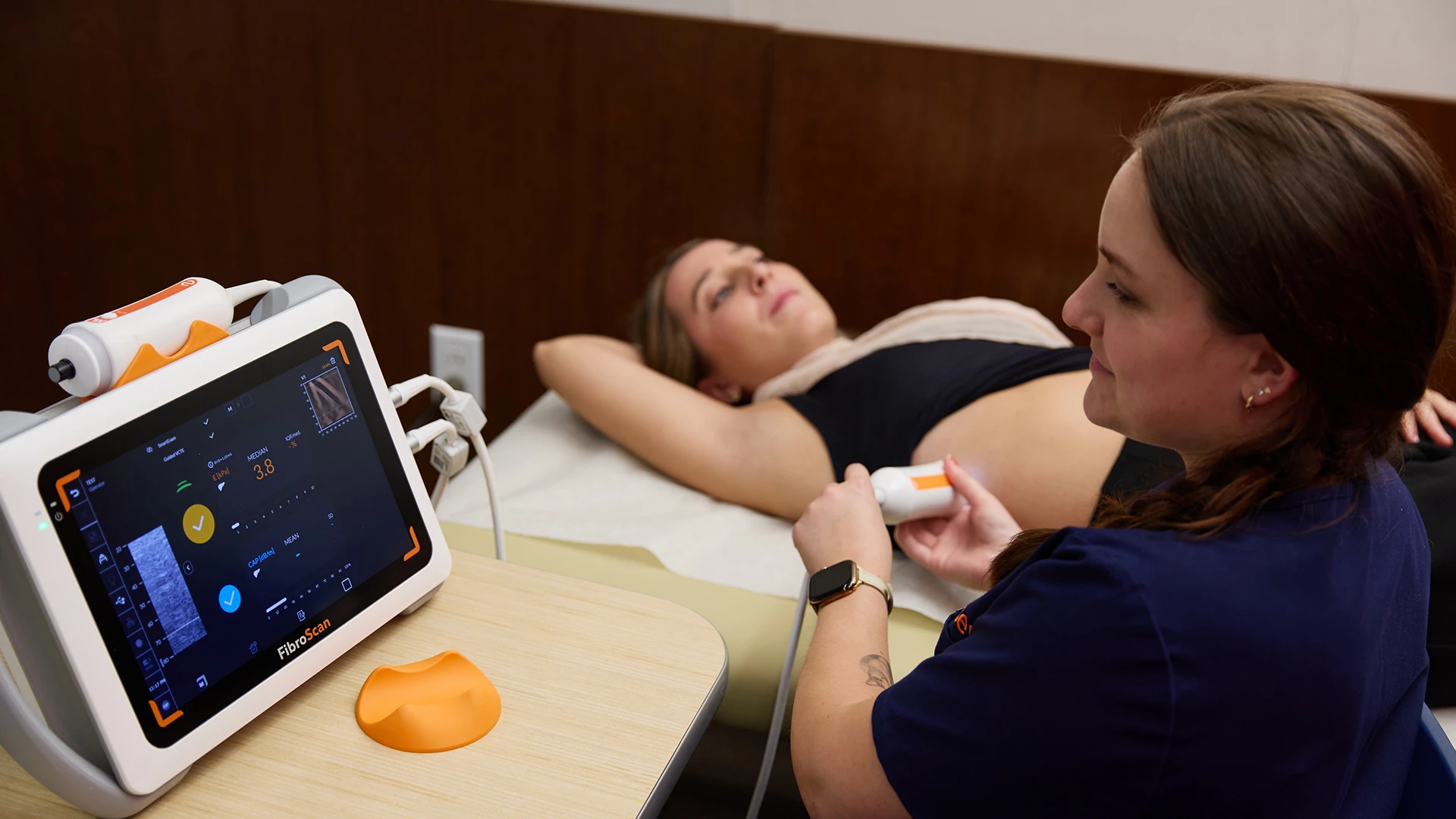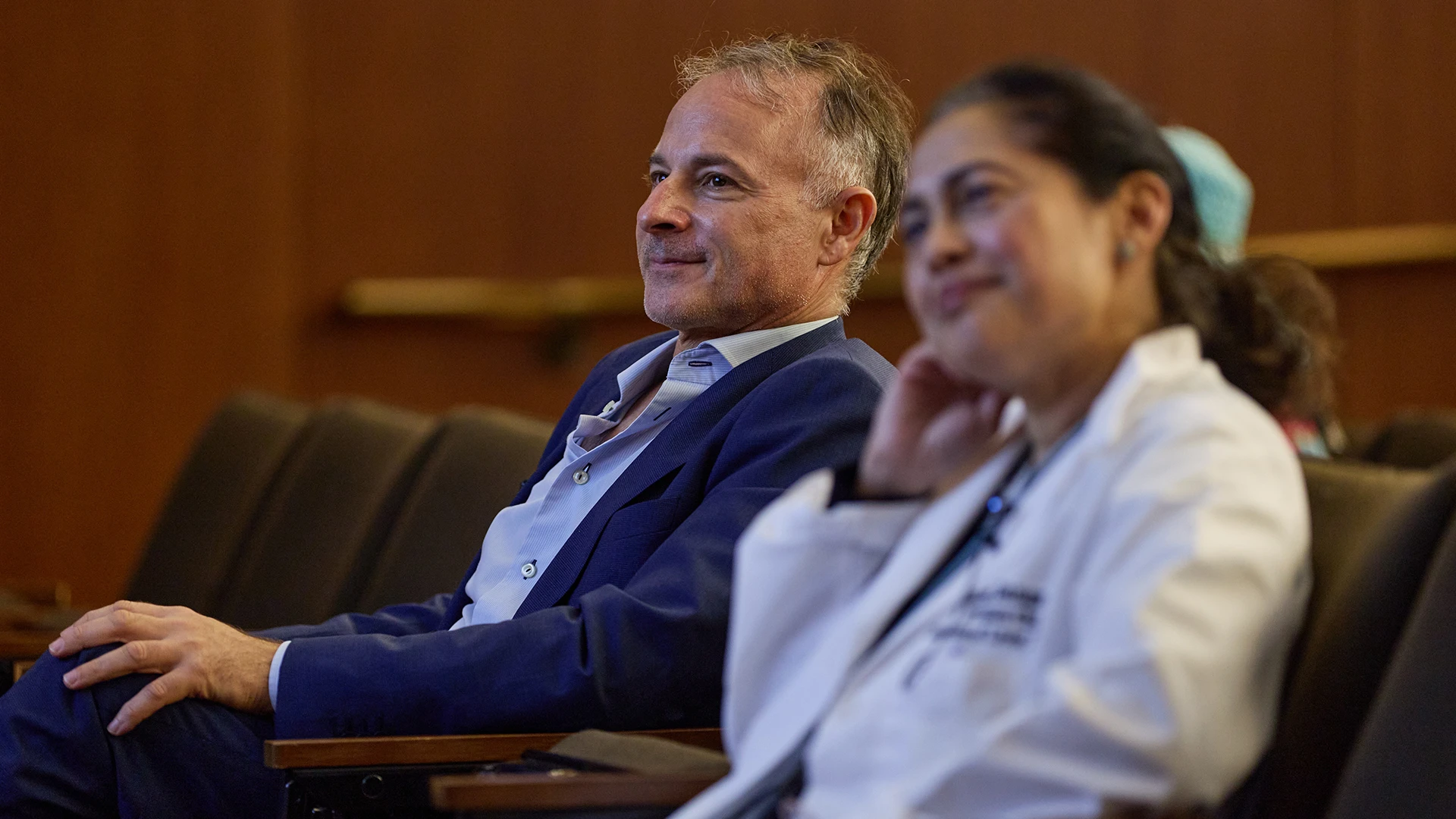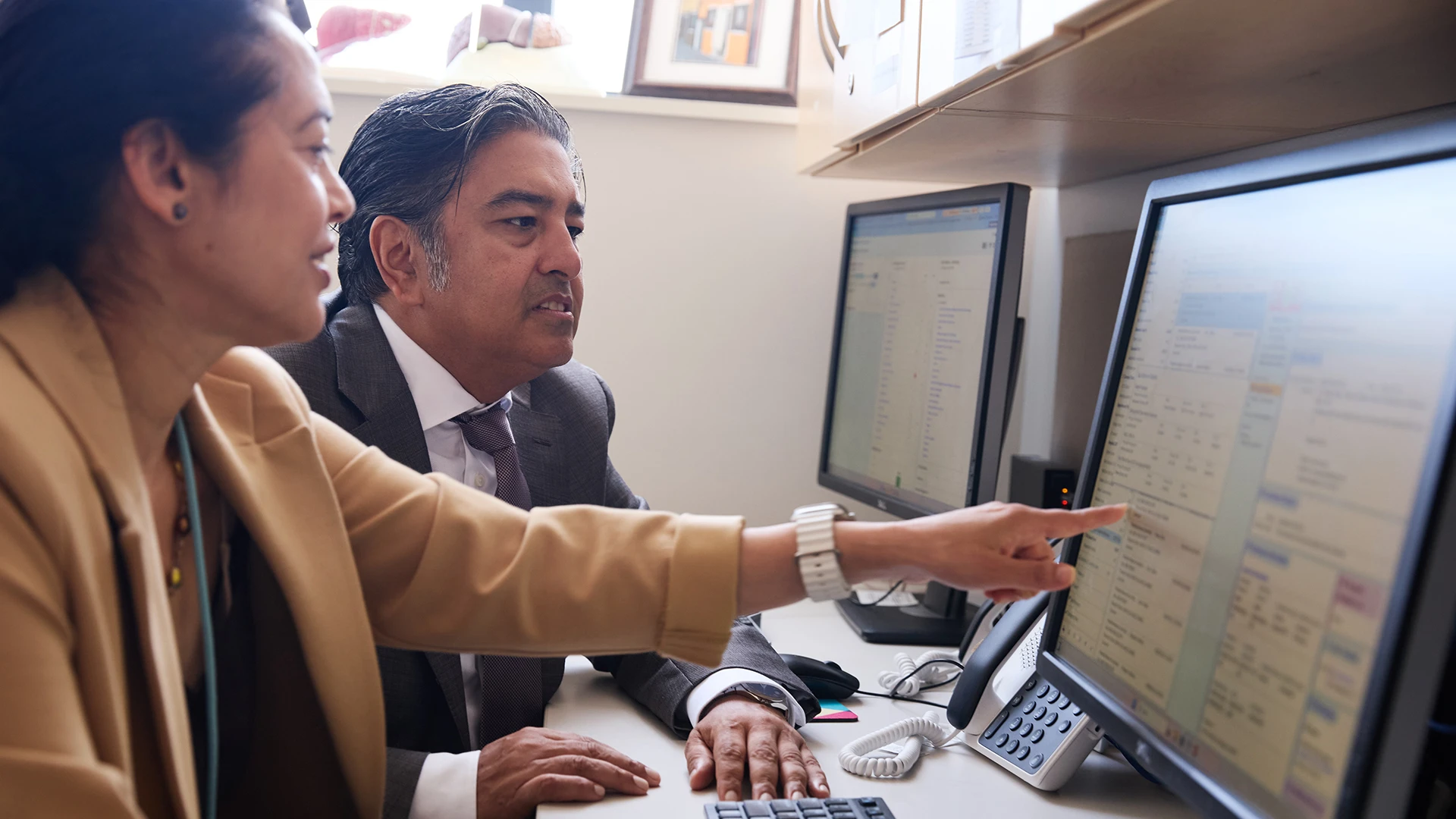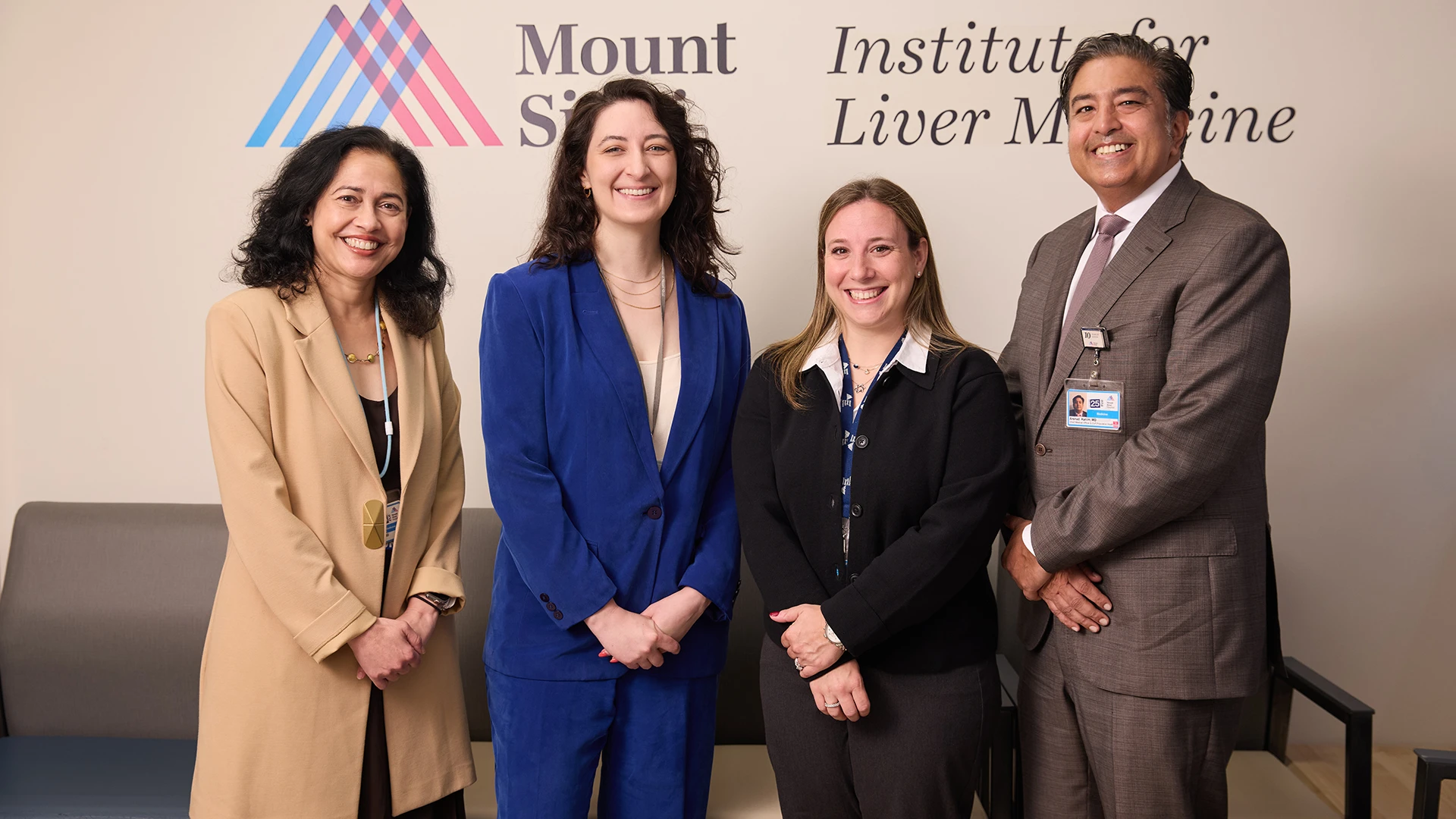A third of all adults in the United States are believed to have fatty build-up in the liver, and roughly 20 percent of that population is developing next-stage inflammation and scarring. These facts have all but ensured steady growth for the Mount Sinai Health System’s MASLD/MASH Center of Excellence.
Indeed, the Center’s longitudinal registry, the linchpin of its large and nationally recognized body of work, is expected to increase to 1,500 patients by the end of 2025 as researchers and clinicians continue to leverage its trove of data to find new ways to battle a serious hepatic disease that can lead to cirrhosis and liver cancer if not treated in a timely way. Sadly, most people are unaware they even have the disorder.
Raising public awareness of MASH (metabolic dysfunction-associated steatohepatitis) and its precursor condition, MASLD (metabolic dysfunction-associated steatotic liver disease), is thus a top priority for the Center, as evidenced by its extensive outreach over the past year. Under the leadership of Director Meena Bansal, MD, System Chief, Division of Liver Diseases, the Center plays an active role in MASH Cities, a partnership with Jeffrey Lazarus, PhD, MIH, Professor of Health Policy and Management at the City University of New York and an adjunct faculty member at Mount Sinai, to engage policymakers, public health and community leaders, and health care providers in four U.S. cities (New York, Los Angeles, Chicago, and Houston) around the urgency of MASH.
In addition, as part of its collaboration with the Fatty Liver Alliance, Mount Sinai hosted a community screening event in September 2025 that gave 60 people free liver FibroScans, along with the chance to attend a lecture and Q&A session with Dr. Bansal. Those identified with significant fibrosis will be linked to care within the Center.
“We’re particularly interested in encouraging people with diabetes mellitus and those living with obesity to know their fibrosis scores so they can determine if they need further clinical assessment,” says Dr. Bansal, who created the MASLD/MASH Center of Excellence in 2022. “And MASH Cities is a great way to increase global awareness, building off a city- and street-level approach that can have meaningful impact.”

A recent community screening event at Mount Sinai is one of the ways the MASLD/MASH Center of Excellence is trying to raise awareness of these conditions.
The MASH registry, which also includes biobanking of samples (liver tissue, serum, and plasma), has spawned a host of innovative and translational studies that are helping to usher in a new era in the treatment of MASH—and keep Mount Sinai entrenched at the center of the evolving science.
The popular drugs Ozempic® and Wegovy® for treating type 2 diabetes and obesity, respectively, are among several undergoing clinical trials for MASH at Mount Sinai. And in March 2024, resmetirom became the first medicine approved by the U.S. Food and Drug Administration for treating MASH and liver fibrosis after demonstrating significant disease resolution and fibrosis improvement in studies led by Dr. Bansal and her team. Previously, the only treatment for these patients was lifestyle changes aimed at weight reduction.
Other studies building on the breakthrough drug, for which Dr. Bansal’s team has received funding, will soon be underway. “We have plans to launch a study looking at resmetirom in people with HIV, a population that has never been part of research in this area and currently has no treatment options for MASH,” she says. “We also plan to examine in another study what impact good nutrition and, specifically, the delivery of medically tailored meals might have on the effectiveness of resmetirom therapy in a real-world setting.”
Primary care providers constitute the front line of defense against MASH, and recent grants from Pfizer and The Kinetix Group are enabling the Center of Excellence to expand its original work and start to screen and risk-stratify individuals in Mount Sinai primary care and endocrinology clinics. A key part of that program is exposing physicians to a tool known as FIB-4, a noninvasive test that estimates a patient’s level of liver fibrosis and integrates that information into the Health System’s electronic medical records. Doctors also receive customized reports that demonstrate the value of screening patients for advanced fibrosis and the impact of adhering to proven care pathways, such as referring patients with intermediate fibrosis scores for a FibroScan.

Dr. Lazarus, left, and Dr. Bansal at a Mount Sinai-sponsored conference to raise awareness among physicians of MASLD and MASH.
With a grant from Petauri and the assistance of Mount Sinai’s population health group led by Arshad Rahim, MD, MBA, Chief Medical Officer and Senior Vice President for Population Health and Clinically Integrated Network, the Center is also focusing on large blocs of patients living with type 2 diabetes.
“These are people who are at highest risk but often don’t know they have liver disease,” emphasizes Dr. Bansal. “We’re now working to develop a population-level dashboard of all our diabetes patients to identify those most at risk, reach out to them, and link them to the appropriate level of clinical care.”
Dr. Bansal is further advancing the field of MASH by filling a void in clinical education. She has planned, and hopes to launch, a first-of-its-kind fellowship program that embraces transdisciplinary training in preventive hepatology, nephrology, and cardiology.
“There’s a huge need for specialists like this whose expertise spans the field of dysregulated metabolic health and are prepared to treat obesity, alcohol, and drug addiction, as well as have knowledge of nutrition and the role of bariatric surgery,” she explains. “I believe our fellowship will serve as a paradigm for other institutions that are also looking to make clinical inroads in a field with so many downstream consequences.”

Dr. Rahim, right, is using Mount Sinai's robust population health EMR infrastructure to review the Center’s liver screening opportunity for Mount Sinai patients with type 2 diabetes.

From left: Dr. Bansal; Anna Mageras, MPH, Director, Population Health and Research, Liver Diseases; Alexandra Ingber, MPH, Senior Director of Clinical Integration and Care Standardization, Population Health; Dr. Rahim
